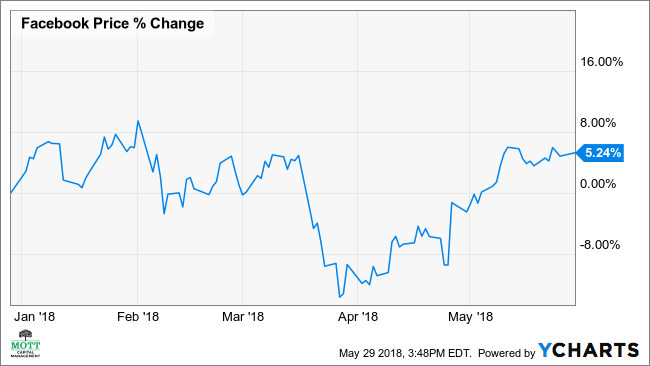Table of ContentsWhat Does The France Bond Market Finance - QuestionsUnknown Facts About What Is Zero Coupon Bond In FinanceThe 5-Minute Rule for Why Invest In A Bond Yahoo FinanceRumored Buzz on What Does Everything In The Price Of A Bond Formula Stand For In Finance
Organisations aren't the only entities that can provide bonds. Federal governments and municipalities offer them too. Let's take a look at how these type of bonds vary. Advertisement Government Bonds: To fund programs, satisfy their payrolls and basically pay their costs, federal governments problem bonds. Bonds from steady federal governments, such as the United States, are considered extremely safe financial investments.
The U.S. government releases its own bonds from the treasury and from several federal government firms. Those maturing in less than one year are called T-bills. Bonds that develop in one to 10 years are T-notes, and those that take more than 10 years to develop are treasury bonds. Sometimes, you don't have to pay state or regional earnings taxes on the interest they earn.
Munis financing things like healthcare facilities, schools, power plants, streets, office buildings, airports, bridges and the like. Municipalities generally issue bonds when they need more money than they gather through taxes. The good idea about municipal bonds is that you don't have to pay federal earnings taxes on the interest they earn.
While corporate bonds are a higher risk than federal government bonds, they can earn a lot more cash. There's also a much larger selection of business bonds. The drawback is that you do have to pay federal earnings tax on the interest they make. Especially when buying business bonds, it is necessary to consider how risky the bond is.
You can research the provider's financial scenario to see how solid its potential customers are. This includes examining things like capital, debt, liquidity and the business's service plan. As fun as it sounds to look into these things, the majority of us don't have the time or skills to analyze a corporation's financial circumstance properly.
Their professionals look into a company's scenario and identify a bond rating for the company. Every score service has its own formula for determining threat and its own kind of rating scale. Typically, ranking scales are defined in letter grades, where an AAA score designates a safe, low-risk bond, and a D score designates a high-risk bond.
federal government bonds, are usually low-yield bonds. You can depend upon getting a payout but that payout will be little. finance quizlet when bond rates rise. On the other side of the spectrum, you have what's not-so-affectionately understood as, which are low-rated, high-risk bonds. In order to entice investors into purchasing these risky junk bonds, the providing companies assure high yields.
The smart Trick of What Is The Value Of A Bond Quizlet Finance That Nobody is Talking About
However if you do, you could get paid in spades. Still unsure about some of the terms connected to bond investment? Check out the glossary on the next page.
Bonds are loans made to large companies. These consist of corporations, cities, and nationwide federal governments. A specific bond is a piece of a huge loan. That's since the size of these entities needs them to obtain money from more than one source. Bonds are a kind of fixed-income financial investment. The other types of financial investments are cash, stocks, commodities, and derivatives.
They vary according to who provides them, length till maturity, rate of interest, and threat. The most safe are short-term U.S. what is a bond finance. Treasury expenses, but they also pay the least interest. Longer-term treasurys, like the standard 10-year note, use slightly less danger and marginally higher yields. TIPS are Treasury bonds that safeguard against inflation.
They return a bit more than Treasuries but are a bit riskier. Business bonds are issued by business. They have more risk than federal government bonds since corporations can't raise taxes to spend for the bonds. The danger and return depend on how credit-worthy the company is. The highest paying and highest risk ones are called scrap bonds.

Up until then, the borrower makes agreed-upon interest payments to the shareholder. Individuals who own bonds are also called financial institutions or debtholders. In the old days, when individuals kept paper bonds, they would redeem the interest payments by clipping coupons. Today, this is all done digitally. Naturally, the debtor pays back the principal, called the face value, when the bond matures.
They can only do this since there is a secondary market for bonds. Bonds are either openly traded on exchanges or offered privately in between a broker and the creditor. Because they can be resold, the worth of a bond rises and falls until it matures. Envision The Coca-Cola Company wanted to borrow $10 billion from investors to get a big tea company in Asia.

It issues each bond at a par value of $1,000 and assures to pay pro-rata interest semi-annually. Through a financial investment bank, it approaches financiers who purchase the bonds. In this case, Coke requires to sell 10 million bonds at $1,000 each to raise its preferred $10 billion before paying the fees it would sustain. Each $1,000 bond is going to receive $25.00 each year in interest.
What Is A Bond Finance Can Be Fun For Everyone
If all works out, at the end of ten years, the original $1,000 will be returned on the maturity date and the bond will cease to exist. Bonds settle in 2 ways. Initially, you get income through the interest payments. Of course, if you hold the bond to maturity, you will get all your principal back.
You can't lose your financial investment unless the entity defaults. Second, you can profit if you resell the bond at a higher cost than you purchased it. Often bond traders will bid up the price of the bond beyond its face value. That would occur if the net present value of its interest payments and principal were higher than alternative bond investments.
Lots of individual investors choose to let a skilled fund manager pick the finest choice of bonds. A bond fund can likewise decrease danger through diversity. In this manner, if one entity defaults on its bonds, then just a little part of the investment is lost. Some bonds, understood as zero-coupon bonds, do not distribute interest income in the type of checks or direct deposit however, rather, are issued at a specifically determined discount.
Over the long haul, bonds pay out a lower return on your financial investment than stocks. Because case, you might not make enough to surpass inflation. Investing only in bonds might not enable you to save enough for retirement. Companies can default on bonds. That's why you require to examine the shareholder's S&P ratings.
They could rapidly default. They must offer a much greater rates of interest to bring in purchasers. Although normally considered "safe," bonds do have some threat. Credit risk describes the likelihood of not getting your guaranteed principal or interest at the contractually ensured time due to the company's failure or hesitation to disperse it to you.
The outright highest investment-grade bond is a Triple-A ranked bond. There is always a possibility that the government will enact policies, intentionally or unintentionally, that cause extensive inflation. Unless you own a variable rate bond or the bond itself has some sort of integrated security, a high rate of inflation can ruin your buying power.
When you purchase a bond, you understand that it's probably going to be sending you interest income routinely. There is a danger in this, however, because you can not predict ahead of time the exact rate at which you will be able to reinvest the cash. If interest rates have actually dropped considerably, you'll have to put your fresh interest earnings to work in bonds yielding lower returns than you had been delighting in.
The smart Trick of What Is A Gt Bond (Finance) That Nobody is Talking About
This indicates that when you acquire them, you might have a difficult time offering bonds at leading dollar. This is one of the reasons it is generally best to restrict the purchase of individual bonds for your portfolio to bonds you intend to hold until maturity. For lots of people, valuing bonds can be complicated.
In other words, the more demand there is for bonds, the lower the yield. That seems counter-intuitive. The reason depends on the secondary market. As people need bonds, they pay a higher cost for them. But the interest payment to the bondholder is repaired; it was set when the bond was first offered.
Put another way, the price they paid for the bond yields a lower return. Investors typically require bonds when the stock market ends up being riskier. They are prepared to pay more to avoid the higher threat of a plunging stock market. Because bonds return a set interest payment, they look appealing when the economy and stock exchange decline.